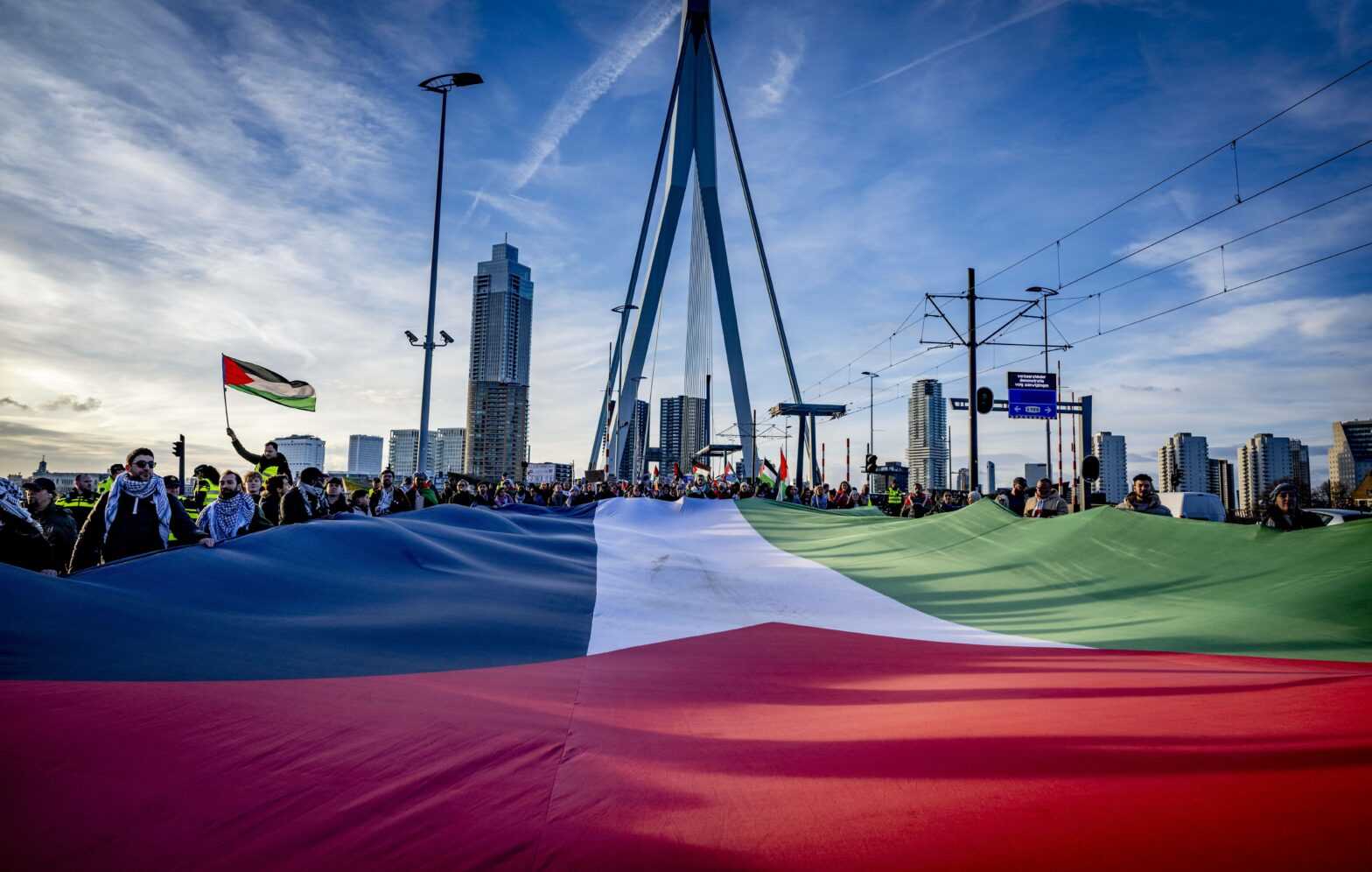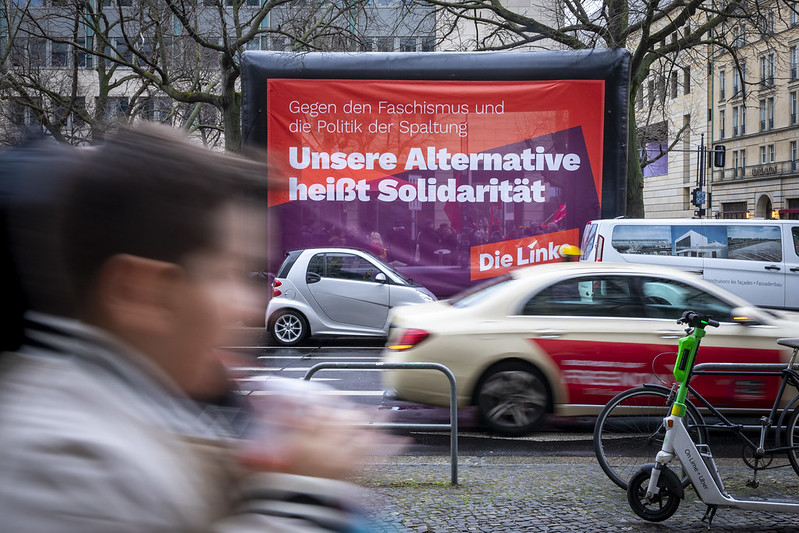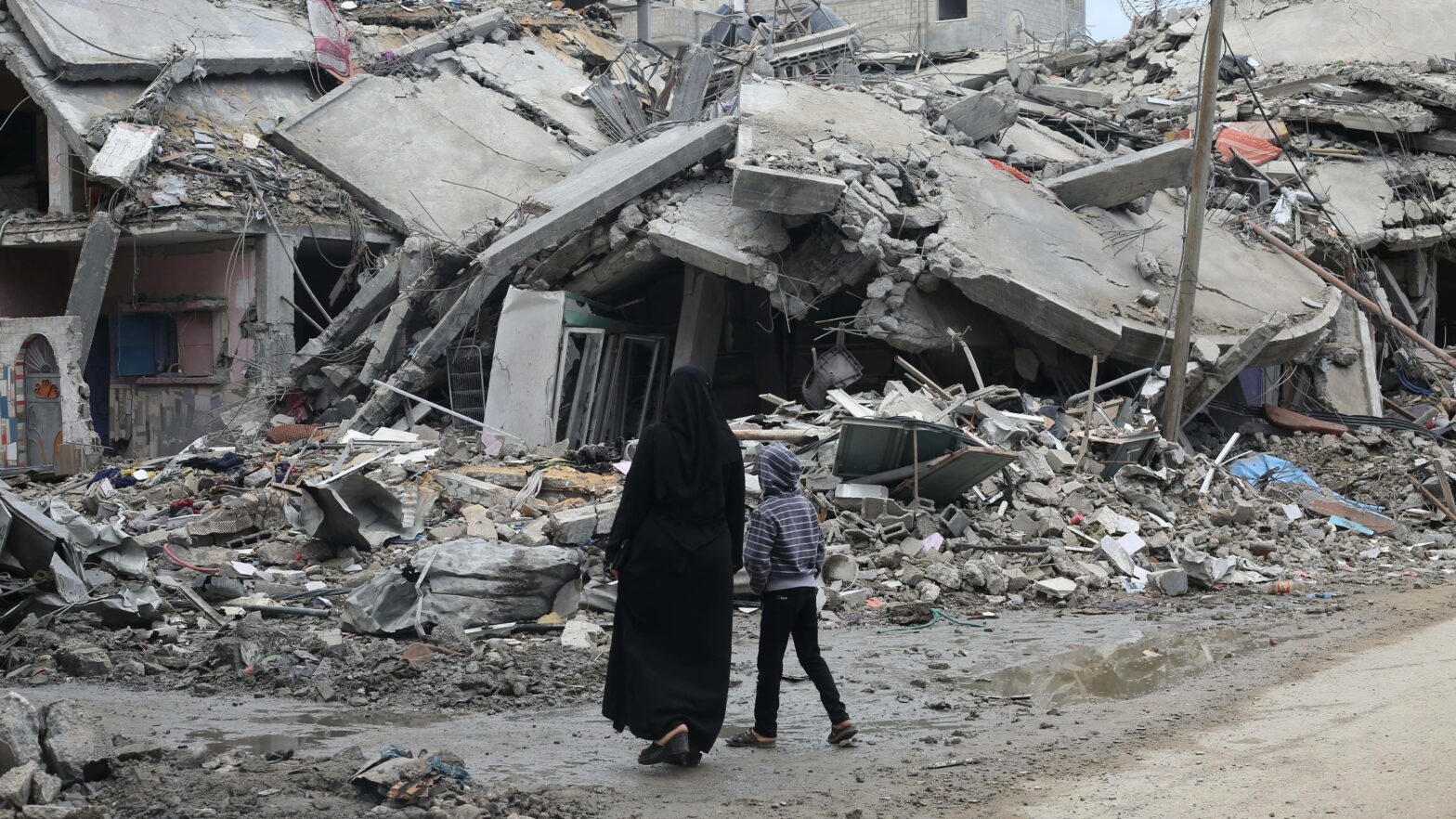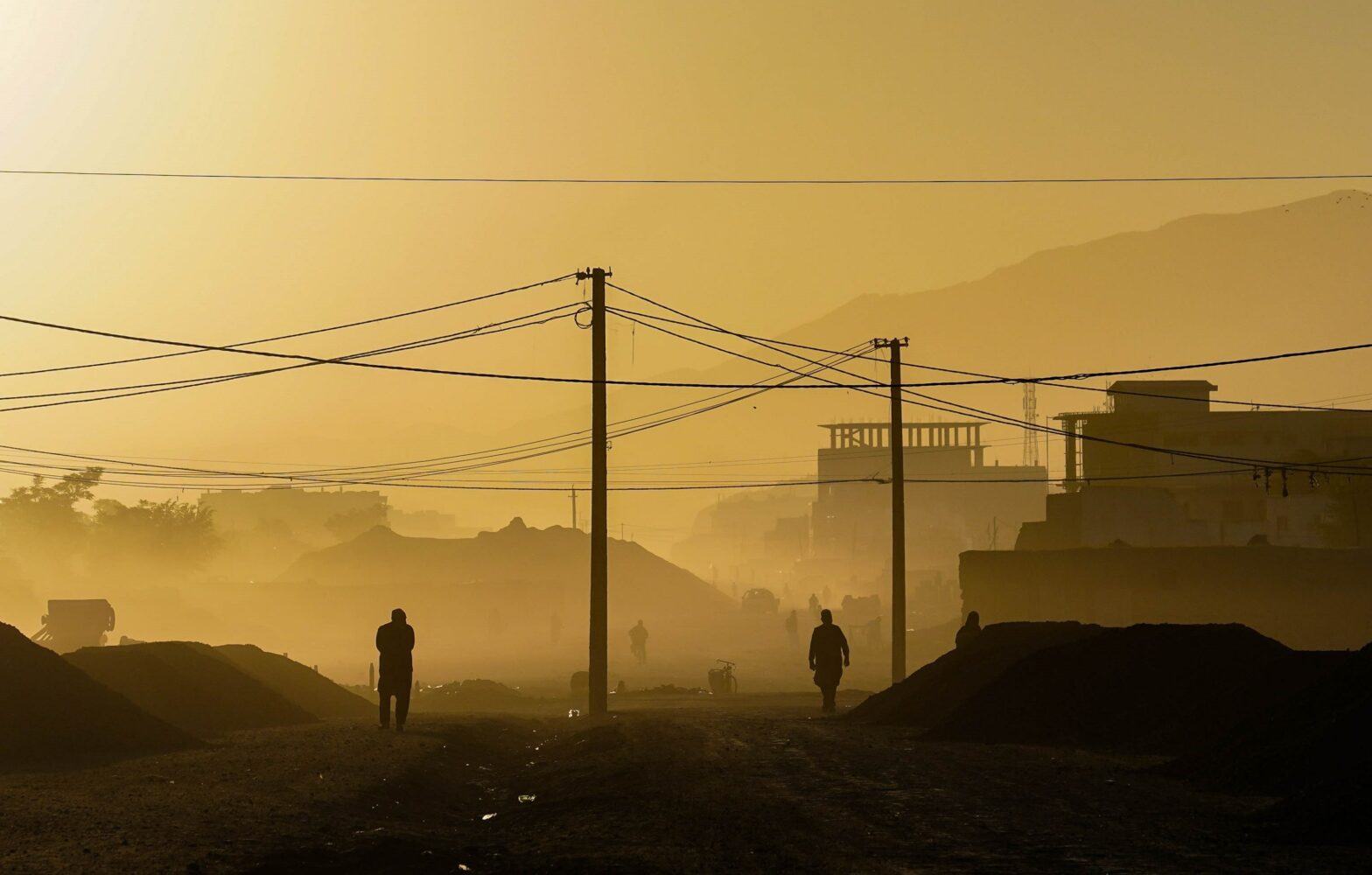Share Twitter Facebook Email Copy URL
In early October 2023, “The Invisible” had its world premiere at the 18th Marbella International Festival. The movie, produced by Filmerei and Rosa Luxemburg Stiftung, documents the everyday life of migrants in southern Spain, their inhumane work conditions and their hopes for a better, healthier and safer life.
Watch the movie below!
Synopsis
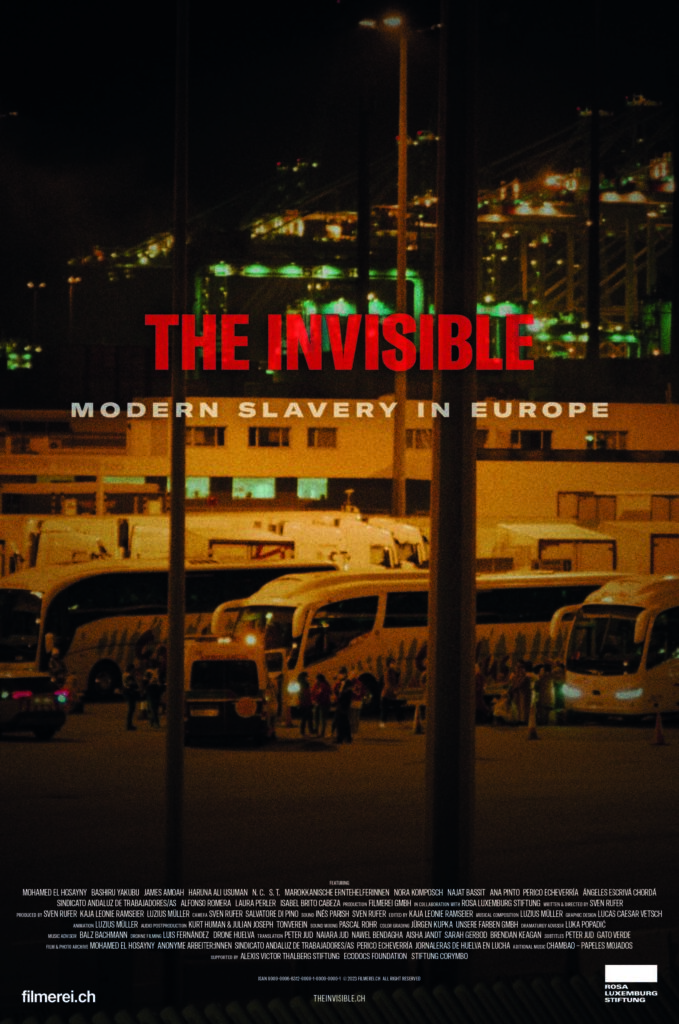
The film documents the everyday life of migrants in southern Spain. They pick the red berries for our
supermarket shelves under inhumane conditions. They talk about their lives, which are marked by violence, poverty, exploitation, lack of health care and lack of prospects.
Worldwide, 28 million people live in working conditions that are considered modern slavery. This also
applies to the 100,000 harvest workers in Huelva, Spain, who harvest fruit worth one billion euros every year. 100,000 individual fates that have one thing in common: they left their homeland for a better life – and did not find it.
Parallel to the stories of the migrants, a Swiss doctoral student, is researching the working conditions and the health consequences of these precarious living situations. Her conversations with representatives from trade unions, journalists, politics and academics show: there are no simple solutions. Spain, the EU, the major distributors and other profiteers do not seem to want to change anything.
Watch “The Invisible”
Interview with Sven Rufer, Filmerei
Yann Hakam: Hi Sven! So tonight is the world premiere of the movie “The Invisible” in Marbella, how are you feeling?
Sven Rufer: I am very happy that the world premiere takes place in Spain! The movie was shot close to here in Huelva so it is important for this movie to be shown where the problem is lying. Also it is very exciting to be able to show our work and to have some press about it, let’s hope it can change some things.
Yann: You previously said that it was particularly challenging to shoot this movie, can you be more specific?
Sven: Making the movie was challenging in different ways, starting with the language of course since I am not a native Spanish speaker. So talking to people in general was hard, but also having access to people was tough, both the Spanish Unions for examples and the workers. It takes a lot of time to build a network.
Then of course, when you are shooting in a foreign country on a sensitive subject like this one, you are not really aware of the danger. First, you have to access the workers, then enter the fields to get footage, etc. It is particularly hard in a setting where you are not welcome, since of course the companies do not want any of what they do to be public. Some workers are also afraid for their job or even their security, so that has to be taken into consideration of course.
But then the most challenging overall after getting to the people, was that I am from a rich country (ndlr Switzerland) and being in the middle of people living in very poor conditions was emotionally draining. I was part of their life for a while but not really part of it at the same time, because I would get back to my life in the end. That was emotionally hard to see the situation and feel helpless. That is more of an emotional and personal note that I had to deal with, and that I am still dealing with today.
Yann: What are the next steps for the movie after Marbella?
Sven: That’s a good question! Thanks to the Spanish premiere we had some requests for different organizations in Spain, for different projections in Madrid, Huelva and Malaga. Some screenings should be organized soon in other big Spanish cities as well. We would love to have a premiere in Switzerland, as it would be great to have some media attention on this topic outside of Spain in the near future.
Yann: What could we do to help “the Invisible”?
Sven: They should have access to basic rights as well as basic facilities such as safe accommodations with electricity and water. They should have normal working conditions, especially since their work is very physical and they spend hours in the sun and heat; and obviously, they should be paid correctly and provided with medical insurance. Their dignity is not respected and that is worrying.
In order to reach that, we need to put pressure on the Spanish state and that should come from different parties, including the European Union and other countries. The supermarkets should be more responsible and should control under which the conditions the food they buy is harvested. They should take other measures as well, but that takes time and energy so we hope that movies like ours and the press attention that we are having will help put pressure on them.
Yann: Do you have any news from the protagonists of the movie?
Sven: Yes, we have news from them! Unfortunately, Mohammed’s chabola burned down a second time only weeks ago and he is currently staying in a friend’s chabola with 6 other people. His wife is pregnant with another child. Mansour was travelling around again to find work, because, at this time of year, there is no work in Huelva, and no work means no money.
So yeah, the situation is not better than it was last year, we are keeping hope that their conditions could change in the near future.
Sven Rufer is the director of the movie "The Invisible" and CEO of the production company Filmerei
Yann Hakam is the Communication Manager of RLS Geneva
